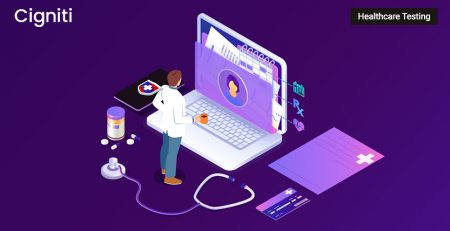Healthcare Technology Trends post-pandemic
|
Listen on the go!
|
Introduction
In general, the capacity to specify challenge conventions in order to change the form of a progress timeline is seen as a trend. The documenting of development and experimentation is what trends are. There would be no observable development if trends did not exist, and just a bloodline of sameness would remain. Because trends are relevant for every generation, they allow us to cater to the needs and wishes of the audience at any given time.
As hospitals, health systems, and patients increasingly depended on digital health technologies for care delivery during the pandemic, health IT adoption soared in 2020, paving the way for continuing growth and innovation in 2021.
Covid-19 spread at such an incredible rate that healthcare personnel and hospitals were put under severe strain. There were more Covid patients than hospitals could handle, which meant that non-Covid patients were forced to wait unless they were in a life-threatening situation. It also put a great deal of financial strain on healthcare providers. According to the American Hospital Association, hospitals lose more than $50 billion per month.
Hospitals’ financial losses will be mitigated as part of their restoration strategy in 2021. Here’s where technology comes in handy. There is so much that healthcare businesses can do to make things better for themselves by embracing technology, from being able to simplify their operations with AI technology to saving costs with Telehealth.
This article discusses healthcare technology trends for 2021, as well as how each of these technologies will impact the medical business in the near future.
1. Telehealth enables Rapid Change
Telehealth has grown in popularity in recent years, and for good reason: it can greatly benefit urgent care institutions. In an emergency, telemedicine can monitor and treat a large number of patients from afar. Both the physician and the patient benefit from telehealth since it saves time and reduces stress.
Doctors may electronically follow up with patients, reducing the stress of last-minute appointments. As a result, telehealth is ushering in a new era of virtual reality in health care.
2. Digital Health to The Rescue:
As digital health becomes more prevalent in our daily lives, it becomes a valuable tool in medical device and healthcare technology trends for 2021.
Wearables and smart gadgets can monitor a patient’s every move, including their sleep pattern, heart rate, calorie intake, and activity duration. This can assist caregivers in gaining a clear picture of the patient’s condition and making changes as needed.
Wearable gadgets, for example, can identify and alert clinicians to a patient’s atypical electrocardiography pattern, lowering the risk of more serious illnesses.
Wearables, health sensors, and trackers are among the digital medical gadgets that are being utilized in conjunction with the Internet of Things. It allows patients to view their information on their mobile devices.
They’ve made it possible to advance personalized healthcare in a systematic way, and they’ll continue to be a key instrument in medical device and healthcare technology trends in 2021.
The pandemic ushered in a new era of social distancing, forcing healthcare institutions to increase their digital presence and capabilities in order to keep in touch with patients. With the “digital front door” serving as a potential patient’s initial impression of a health system, the online experience has become a vital component of their overall reputation.
3. Advances in Data Science and Predictive Analytics:
Compressing all of the data created by patients with chronic illnesses might be difficult.
Nonetheless, significant advancements in data science and predictive analysis have provided doctors with deeper insights, allowing them to acquire information on ancestry and family history, as well as identify patients at high risk of developing issues and diagnose them effectively.
By 2020, more health systems will have the technical capability to perform precision medicine and move closer to predictive analytics, thanks to the accelerated digital revolution. For more efficient patient treatment, Mount Sinai Health System in New York City developed machine learning-powered models to identify high risk and likelihood of mortality among COVID-19 patients.
4. Artificial Intelligence’s Impact:
The change brought about by artificial intelligence technology has a profound impact on healthcare. There is little doubt that AI will dominate future healthcare trends. Through automatic help in the workforce, clinical operation optimization, quantitative imaging, and other methods, it has enhanced diagnostic precision.
For years, artificial intelligence and machine learning have been applied in hospital administration and operations, particularly in the revenue cycle process. Researchers began testing AI models to read medical photos before the epidemic, with varied results, causing some to doubt if AI and machine learning would live up to the hype.
However, AI has been critical in generating prediction models for COVID-19 instances that have spread across the country in the previous year. Mount Sinai in New York City, Johns Hopkins University in Baltimore, Mayo Clinic in Rochester, Minn., and the University of California-Irvine created predictive algorithms and models to track the virus and assess the likelihood of COVID-19 patients having severe symptoms. In the coming years, the sector will continue to develop and become more integrated with clinical treatment.
5. EHRs are gaining additional capabilities:
Hospitals and health systems are allowing similar technologies into patient rooms as digital voice assistants like Amazon Alexa and Google Home have cemented a position in customers’ living rooms. Epic and Cerner, both EHR suppliers, signed partnerships to integrate Nuance’s virtual assistant into their software this year, while Epic is developing its own ambient voice technology called Hey Epic!
6. Virtual, Augmented, And Mixed Reality:
Virtual and augmented reality have considerably advanced healthcare technologies. In the healthcare industry, AR and VR have a lot of potential.
By 2025, the market for augmented and virtual reality in healthcare is expected to reach 5.1 billion dollars. This technology is incredibly useful for patient treatment and care, as well as training and operation simulation.
Virtual reality can help people with depression, cancer, autism, and visual impairments in a variety of ways.
This enables clinicians to treat patients more effectively by gaining a thorough understanding of their situation through enhanced educational resources.
Closing thoughts
This year, digital health solutions have progressed from a “nice to have” to an “essential requirement.” The scope and promise of telehealth in enhancing the value of healthcare is considerable, ranging from on-demand virtual urgent care and virtual visits to virtual home health services and tech-enabled home drug administration.
Cigniti has a Healthcare and Life Sciences Software Testing Center of Excellence (TCoE) and a Hospital Application Test Approach that helps our clients gain significant business value in healthcare and life sciences software testing, automation, mobile app testing, connected health IoT, and regulatory testing.
Most of our clients are tagged around the areas of Clinical labs, diagnostic centers, hospitals, healthcare ISVs, healthcare services, medical equipment manufacturers, payers, pharmaceutical companies, third-party administrators (TPA) etc.
Need help? Talk to our healthcare and life sciences experts to find out more about the latest healthcare technology trends and gain business value in healthcare digital assurance.





Leave a Reply